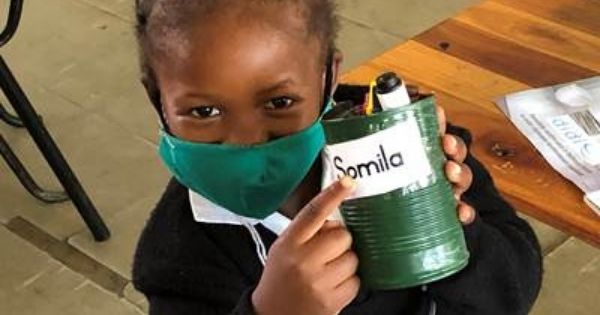The COVID-19 epidemic has influenced education and learning, with the most vulnerable children hardest hit, according to READ Educational Trust.
Since the coronavirus pandemic, students have lost critical learning time due to rotational attendance, intermittent school closures, and grade-specific days off. Additional school day losses and unforeseen school closures were largely attributed to teachers or students contracting the virus or showing possible symptoms of COVID-19.
In light of National Children’s Day on the 6th November, READ Educational Trust, a South African NGO promoting literacy in schools for over 40 years, encourages all to continue teaching children how to read with confidence, despite the challenges the education system faces.
Here is what READ discovered from data collected by the University of Stellenbosch and the Department of Basic Education:
School Attendance Rates During Phased Reopening Of Schools
Following the initial outbreak of COVID-19 in South Africa, schools were closed unexpectedly on March 18, 2020, with a phased reopening that was delayed numerous times due to lockdowns.
Using data from the second wave of the National Income Dynamics Study – Coronavirus Rapid Mobile Survey (NIDS-CRAM), it was clear that school attendance rates during the phased reopening of schools were significantly lower than in normal times.1
Data suggests that the ratio of learning losses to lost schooling days has been as much as 1.5; that is to say, the actual number of school days lost underestimates the amount of learning lost
Due to the staggered reopening of public schools and rotational attendance timetables, students in grades 1 to 5 lost over 60% of possible 198 school days.
Depending on how well the school system and individual instructors catch up lost learning, below-expected Grade 12 outcomes may remain until at least 2022, and maybe until 2031.2
Impact Of COVID-19 On SA’s School Meals
While hunger levels among school children have stayed consistently high relative to pre-COVID-19-times, access to free school meals has declined from 49% in November/December 2020 to 43% in February/March 2021. Even when schools had reopened entirely in November 2020, the levels of receiving weekly school meals have not yet reached pre-COVID-19 levels.3
It’s difficult to say why this is the case. It could include factors linked to the variations of rotational timetabling, limited transport when not attending school, parental decisions about participating in school feeding, cases of monthly food parcels being sent home with children rather than daily school feeding, or general disruptions to the school feeding ecosystem as a result of the pandemic.
Supporting The Continuation Of Teaching And Learning During The COVID-19 Pandemic
READ Educational Trust continued to facilitate adaptive responses to emerging education challenges, and to protect young people’s educational opportunities during the pandemic.
Practical steps were taken to improve teacher and learner literacy and knowledge during the unprecedented school closers last year.
In March 2020, READ sponsors and partners assisted with providing food packs to learners and their families at project schools in the Free State, Mpumalanga and Limpopo.
Schools collaborated with READ trainers and shared information, demonstration videos, audio tutorials and resources with parents and learners via WhatsApp and email.
Teachers and parents were informed about the catalogue of Busy-B-Home Activities and stories, which were made available for free via the READ Educational Trust website in response to the pandemic http://www.read.org.za/busy-b-
Several mother-tongue and First Additional Language stories for children to listen to and enjoy, were recorded by the READ Trainers. These were loaded onto the website – https://www.read.org.za/audio-
Sets of worksheets, activities, language games and quizzes were delivered to schools and Community Centres. These helped to keep learners occupied, expand their general knowledge and develop and consolidate essential skills in a fun and non-threatening way.
READ’s philosophy has always been based on supporting teachers in the classroom and building lasting relationships. While COVID-19 certainly threw a spanner in the works, the above interventions and support offered to schools by the READ Educational Trust has been extremely positive and appreciated.
READ Educational Trust Reaffirms Urgent Need for Education Equality
Educational equality has been slowly improving in South Africa, yet this trajectory was fragile already before the COVID-19 pandemic.
We are only beginning to understand the impacts of the COVID-19 pandemic on educational equality and education more broadly.
Educational equality is among the most important matters to worry about when considering South Africa’s future.
While COVID-19 is unlike any challenge we have faced before, READ has successfully addressed many difficult challenges over the years, thanks to the implementation of programmes that assist educators, and principals in overcoming our country’s challenges. READ also provides practical training, hands-on support, and valuable resources that have been highly effective.

READ believes a collective effort can change the face of education and educational equality in South Africa. The only way to succeed is for governments, non-profit organisations, big businesses, and private individuals to stand together and do all they can to combat illiteracy by actively promoting and funding reading and educational incentives.
What better time to act than now?
To find out how you can contribute, contact READ Educational Trust on 0872377781, or visit www.read.org.za.
Join the conversations on:
Facebook: www.facebook.com/
Instagram: www.instagram.com/
 Kaboutjie SA Mommy Blogs by Lynne Huysamen
Kaboutjie SA Mommy Blogs by Lynne Huysamen





Oh this pandemic hit the education system so hard. It took a toll on us as parents as well. Something we had to adapt to. It’s still not the easiest situation, but we are making it work.
It certainly took a big toll on me Jill 🙂